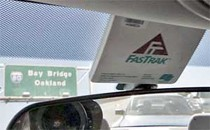Automotive and Transportation Industry Automotive engineering, automotive electronics, vehicle engineering, power train design
Oregon begins building first "solar highway" project
Monday, August 18, 2008 at 7:45 AM Posted by Jone
Just over a year ago, we passed off a far-out proposal that would turn highways into wind farms. Now, however, the state of Oregon is proving that such feats are actually within reach as it breaks ground on the first so-called "solar highway" demonstration project. The project will be installed at the Interstate 5 and Interstate 205 interchange in Tualatin, where it will cover around 8,000 square feet and produce 112,000 kilowatt hours per year. The total cost for the 104-kilowatt solar photovoltaic system is $1.3 million, and believe it or not, it should be completed and operational in December of this year.
[Via: Digg ]
[Tag: eco-friendly,green,highway,oregon,road,solar,solar highway,solar power,solar-powered,SolarHighway,SolarPower,Tualatin ]
Labels: Transportation 0 comments
Segway hits car at full speed, results unsurprisingly painful looking
Saturday, August 16, 2008 at 11:52 PM Posted by Jone
Our Deutsch is a little rusty, but Spiegel's got a hard-hitting, um, sounding story on Segway safety -- specifically regarding what happens when one hits a stationary object or falls off of one while riding it at full speed. Hey der Spiegel, why don't you try the same test with one of those bicycle contraptions we hear Europeans are so in love with? We have a feeling you might be slightly more horrified by the results.
[Via: AutoblogGreen ]
[Tag: safety,segway ]
Labels: Transportation 0 comments
Defcon duo: how-to shut off a pacemaker, almost get free rides on the T
Monday, August 11, 2008 at 7:39 AM Posted by Jone

Defcon already delivered by exposing California's FasTrak toll system for the security hole that it is, but that's not nearly all that's emerging from the Las Vegas exploitation conference. For starters, a plethora of medical device security researchers have purportedly figured out a way to wirelessly control pacemakers, theoretically allowing those with the proper equipment to "induce the test mode, drain the device battery and turn off therapies." Of course, it's not (quite) as simple as just buzzing a remote and putting someone six feet under, but it's a threat worth paying attention to. In related news, a trio of MIT students who were scheduled to give a speech on how to hack CharlieCards to get free rides on Boston's T subway were stifled by a temporary restraining order that the Massachusetts Bay Transit Authority snagged just before the expo. Don't lie, you're intrigued -- hit up the links below for all the nitty-gritty.
[Via: Engadget ]
[Tag: black hat,black hat 2008,BlackHat,BlackHat2008,defcon,defcon 2008,Defcon2008,hack,health,lawsuit,mass transit,MassTransit,medical,MIT,pacemaker,sue,suit,university ]
Labels: Transportation 0 comments
Nissan shows off two more collision avoidance prototypes
Friday, August 8, 2008 at 4:49 AM Posted by Jone
Nissan has a knack for pumping out novel safety advancements every few months, and the latest two are in the same vein as a few previous efforts. Two new technologies, Side Collision Prevention and Back-up Collision Prevention, fit into the auto maker's Safety Shield concept to "help protect the vehicle and its occupants from potential risks coming from multiple directions." As for the first, the tech utilizes side-mounted sensors to activate a warning if an approaching vehicle is detected in the drivers intended lane; from there, a yaw mechanism is "activated through brake control of individual wheels to help prevent a potential collision." For the second, an array of sensors detect potential obstacles and triggers an alarm / puts on the brakes if a collision is about to happen. Per usual, there's no mention of when these brilliant ideas will be implemented into production vehicles, but our insurance bills are pleading for "soon."
[Via: Gizmag ]
[Tag: automotive,Back-up Collision Prevention,Back-upCollisionPrevention,COLLISION FREE,CollisionFree,Nissan,prototype,safety,Safety Shield,SafetyShield,Side Collision Prevention,SideCollisionPrevention,vehicle ]
Labels: Transportation 0 comments
FasTrak toll system exposed, could use a serious dose of security
Thursday, August 7, 2008 at 7:56 AM Posted by Jone
Ah, Black Hat. How we adore you. Each year there's always one speaker who shows up and completely undermines something that most people assume is rock solid. This year, our pals at Hack-A-Day were in attendance to hear Nate Lawson expose California's FasTrak toll system for the security hole that it is. Essentially, toll transponders that are purchased and slapped onto vehicles offer up exactly no authentication, meaning that anyone with an ill will and an RFID reader could wander through a parking lot and lift all sorts of useful information. Think it can't get worse? The transponders reportedly support "unauthenticated over the air upgrading," which means that each tag could be forced to take on a new ID if the right equipment was present. We don't have to spell out "potential disaster" for you, now do we?
[Image courtesy of Mindfully]
[Via: Engadget ]
[Tag: black hat, Black Hat 2008, BlackHat, BlackHat2008, california, FasTrak, hack, RFID, toll ]
Labels: Transportation 0 comments
Subscribe to:
Posts (Atom)
Search
Subscribe via email
About Me
Labels
- Acura (1)
- Aftermarket (45)
- Alfa Romeo (1)
- Ask Autoblog (1)
- Aston Martin (2)
- Audi (9)
- Audio (4)
- Automobiles (2)
- Automotive (2)
- Baron Margo (1)
- BMW (5)
- Brabus (1)
- Cadillac (2)
- Car (1)
- Cars (6)
- Chevrolet (2)
- Concept Cars (3)
- Concepts (1)
- Contests (1)
- Convertibles (4)
- Coupes (8)
- Deals (1)
- Dealzmodo (1)
- Dodge (2)
- Driving (1)
- Economy (1)
- Energy (1)
- Etc. (3)
- Euro (6)
- Ferrari (3)
- FIAT (1)
- Ford (7)
- Frankfurt Auto Show (1)
- Gadgets (6)
- Gallery (1)
- Green (3)
- Hatchbacks (3)
- HUMMER (1)
- Hyundai (1)
- I.C.E. (2)
- Jaguar (2)
- Lamborghini (4)
- Lexus (2)
- Lifestyle (2)
- Marketing/Advertising (1)
- Maserati (2)
- Mazda (2)
- Mercedes Benz (3)
- Military (1)
- MINI (1)
- Mod (1)
- Modding (1)
- Motorcycle (1)
- Motorcycles (2)
- Motorsports (5)
- Murcielago (1)
- Mustang (1)
- New York Auto Show (1)
- Nissan (3)
- Plants/Manufacturing (2)
- Police/Emergency (1)
- Porsche (5)
- Rocket (1)
- rocket car (1)
- Rolls-Royce (1)
- Safety (2)
- Sedans/Saloons (4)
- SEMA (2)
- Sirius (1)
- skates (1)
- SMART (1)
- Solar (2)
- Special/Limited Editions (2)
- Sports/GTs (8)
- Steampunk (1)
- Supercars (12)
- SUVs (2)
- Suzuki (1)
- Tech (2)
- Time Warp (2)
- Toys (2)
- Transportation (92)
- Trends (1)
- Tuners (26)
- Vauxhall (2)
- Vehicles (1)
- Videos (3)
- Volkswagen (8)
- Volvo (1)
- Wagons/Estates (1)
- Wearables (1)
Meta
Volvo Cars
Volkswagen Trucks
IT News 2008



